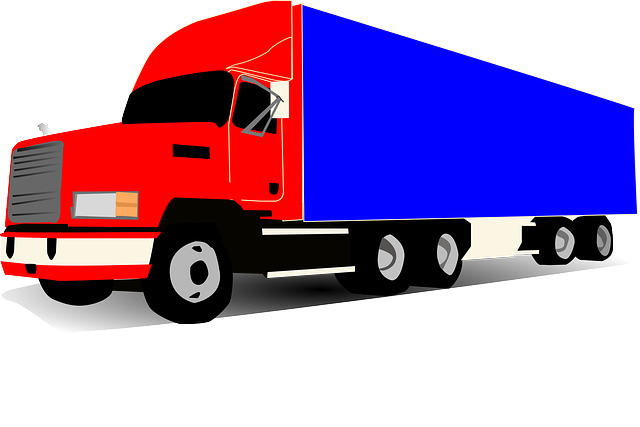Freight invoices are notoriously complex: each shipment can include dozens of line items (fuel surcharges, handling fees, weight/dim fees, etc.), and even a small mistake in classification or weight can lead to large overcharges. MyFreightAudit (a service of Translogistics, Inc.) provides a comprehensive freight invoice auditing service to ensure you only pay correct, verified shipping costs. Over $236 million in freight spend is processed through TLI’s comprehensive freight invoice audit program annually, ensuring accuracy, compliance, and cost recovery for shippers across many transportation modes. Our expert freight invoice auditors use a combination of software and expert knowledge to verify every carrier bill. This service is especially valuable for manufacturers and distributors spending $500K–$1M+ annually on freight, since even a tiny percentage of errors can represent significant dollars.

Our freight auditing process starts with your carrier invoices. As each invoice arrives (via EDI/API or our portal), it is automatically processed through ViewPoint TMS. Our system “knows” your quoted rates (from your contracts) and calculates the expected charge. We compare this to the actual invoice in real time. If the invoice matches the quote, we approve it automatically. If not, the system flags the shipment for manual review by our audit team.
At that point, a MyFreightAudit specialist examines the discrepancy. For example, if the carrier billed a higher freight class than quoted, we check the shipment details. If it’s truly an error, we dispute the charge. If the charge is valid (for instance, if weight or dimensions changed), we document and explain the change. You never have to pay unverified costs, because we won’t pass the invoice to you until it’s fully audited.
How Our Freight Auditing Service Works
- Invoice Collection: We receive copies of all your freight invoices. This can be done via email, or electronic links (API/EDI) or by your carriers emailing/sharing invoices with us manually.
- Automated Pre-Check: Our software immediately checks each invoice against the original quote and any saved contract or corresponding tariff. This covers linehaul, fuel surcharges, and accessorials. If it’s all correct, the invoice moves forward to consolidation. If there’s any mismatch, the system flags it.
- Manual Audit: Our audit team investigates flagged shipments. Common issues include re-weigh discrepancies, NMFC re-classifications, or unauthorized accessorials. We use contract documents, shipment manifests, and carrier proofs (PODs) to determine if a fee is justified.
- Dispute & Resolution: For incorrect charges, we dispute them with the carrier on your behalf. We negotiate adjustments or credits. For valid changes, we document the reason so your accounting sees exactly why a cost changed.
- Consolidated Billing: After review, we generate your final audited invoice. Instead of getting multiple carrier bills, you receive one summary invoice per period with all charges verified. Any savings from disputed charges are reflected before you pay.
This process is powered by invoice auditing tools. For instance, our system automatically detects unexpected reweighs (where a carrier reports a different weight upon delivery) and triggers an audit. It also looks for duplicated charges or out-of-range fuel surcharges. By systematically auditing every shipment line-item, we catch errors that would slip through manual review.

Benefits for Manufacturers and Distributors
Lower Shipping Costs: Clients consistently see lower net freight spend. Our team often recovers 3–5% of total freight costs through auditing. We achieve this by correcting tariff weight-break mistakes, reclassification errors, and unwarranted fees.
Accurate Budgeting: With detailed compliance reports, you know exactly where every shipping dollar went. Monthly or quarterly reporting shows trends (e.g. “Reweighs are up 10% at Plant X”), so you can take corrective action in operations or negotiating new contracts. Likewise automated GL Coding can increase accuracy for tracking transportation spend.
Time Savings: Freight auditing is labor-intensive. By outsourcing it to us, your team frees up hours every month. Our experts handle carrier communication and paperwork. You get the results without lifting a finger.
Avoid Disputes: We handle the hard part – negotiating with carriers. You’re represented by experienced freight auditors who know the rules and speak the carrier’s language. This often leads to faster resolution and higher recovery of funds.
Strategic Insights: Data from our audits helps optimize your supply chain. For example, if we repeatedly flag charges on certain lanes or commodities, you’ll learn to adjust packing or mode selection. Our analytics highlight opportunities like freight consolidation or switching to lower-cost carriers where appropriate.
Why Choose MyFreightAudit
When you use MyFreightAudit’s freight invoice auditing service, you’re not just paying lip service to accuracy – you’re partnering with a logistics provider that guarantees it. TLI (Translogistics) has over 25 years of experience in managed transportation, and we’ve applied that expertise here. Our auditors are freight specialists (many have 10+ years of shipping experience). We focus on clear communication: whenever we find an issue, we explain it and keep you updated on resolutions.
We also offer integrated claims and NMFC classification management. If a carrier not only billed incorrectly but also caused freight damage or loss, our freight claim service can pursue additional recovery. We even maintain a library of your products’ correct NMFC classes (in ViewPoint TMS) to prevent future reclassification errors.
Most importantly, MyFreightAudit is a no-risk solution. If you route most of your freight through TLI, our auditing service can be included at little or no extra cost. Even if you work with your own carriers, we can add our audit-on-top program – earning back more than our fees in savings. For manufacturers and distributors in regulated industries (like medical devices, food and beverage or lab supplies), this peace of mind is crucial – you know your costly shipments are billed correctly, keeping your budgets and compliance tight.
MyFreightAudit FAQ
What is freight invoice auditing?
It’s the process of reviewing carrier bills to ensure charges match what was quoted and contracted. MyFreightAudit compares each invoice line-by-line against the original shipment quote and contract terms. Errors (weight, accessorials, class, or extra fees) are flagged and corrected before you pay.
How do you consolidate invoices?
After auditing, we combine all approved charges into a single invoice (or one per carrier) to streamline payment. This “one-bill” approach greatly simplifies accounting, as you only cut one check (per period) instead of manually paying dozens of motor carriers. Our system automatically merges invoices by carrier and mode, and provides you tracking and supply chain analytics.
Who handles billing disputes?
Our freight audit experts do. If an invoice has a questionable charge, we contact the carrier immediately to challenge it. You never have to start that conversation. We present the evidence (signed BOLs, signed PODs, scale calibration certificates, shipment photos, etc.) and work to get the charge removed or credited.
How does this integrate with TMS/ERP?
MyFreightAudit works via popular TMS systems like ViewPoint TMS and Descartes. We can pull carrier invoices directly into ViewPoint and, after audit, export the final billing data to your ERP. This automated flow keeps your systems updated. Many customers also use our API to transmit payment records from MyFreightAudit back into their accounting software, ensuring consistent GL coding.
Is this only for LTL shipping?
No, this freight audit service is multi-modal – LTL, full truckload, intermodal, etc. The principles across different modes of transportation are the same. In fact, auditing LTL is especially valuable because of its complexity. Our tools handle the specific nuances of LTL (e.g. weight breaks, class exceptions) with the same rigor as truckload (FTL) shipments.
